What is Parging? Why Is It a Must for Every Philadelphia Home Owner?
Parging for Philadelphia homeowners helps to protect and beautify their masonry walls. This simple process involves applying a thin coat of cement...
5 min read
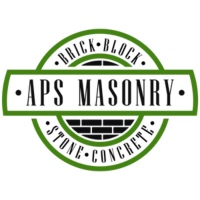 Alec Serowatka
:
Oct 8, 2025 9:17:01 AM
Alec Serowatka
:
Oct 8, 2025 9:17:01 AM
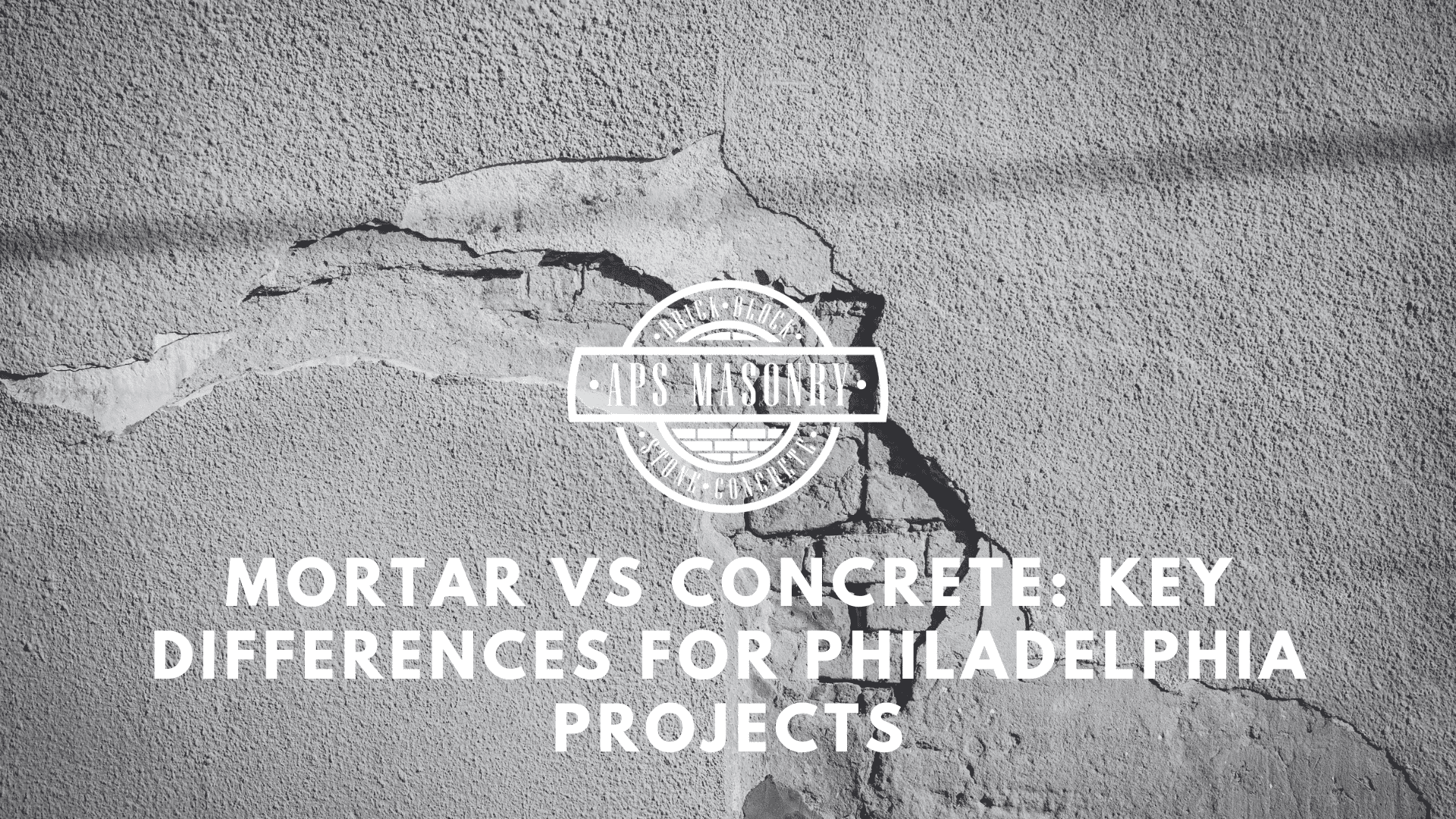
Philadelphia’s streets tell a story in brick, stone, and concrete structures.
From rowhome facades to foundation walls, every surface depends on choosing the right building materials. Mortar vs concrete is not a casual distinction, it is the decision that defines structural integrity, appearance, and longevity. Walk through South Philadelphia and you’ll see where mortar mix has filled gaps and joined bricks for centuries. Cross Center City and notice concrete slabs that hold under endless foot traffic. Both concrete and mortar are complete building material systems, and APS Masonry Contracting knows how to handle each with precision.
A mortar consists of fine sand, lime mortar, and cement, mixed on site or as a dry mixture. A concrete mix relies on coarse aggregate, a cement ratio, and often metal reinforcement or wire mesh. Together, cement and mortar mix or concrete mortar form the backbone of masonry structures across the city. The right mortar, commonly called the binding material of masonry units, carries a thicker consistency for laying brick. Solid concrete, poured as a cement slab or foundation walls, hardens as rock and delivers compressive strength for large projects. Philadelphia is built on these choices, and APS applies them every day.
The secret is this: mortar is the complete building material for rowhomes because it moves with the bricks, while concrete is reserved for structural applications below. That contrast is why the right mortar still holds South Philadelphia’s classic brickwork together after a hundred winters. South Philadelphia’s rowhomes were built brick by brick, and their strength lies in the spaces between. Mortar carries a thicker consistency, fills gaps, and bonds masonry units without locking them rigidly in place.
Concrete mix is the wrong choice for façades. Its compressive strength is more useful for concrete slabs, foundation walls, and other large projects. In a vertical wall of brick, solid concrete would set hard as rock and push against the bricks until cracks spread across the façade. When APS restores a rowhome façade, we rely on cement mortar or lime mortar because it flexes with the wall and protects structural integrity over decades.
Concrete mix is the better choice for Center City driveways and patios. These areas carry the load of parked cars, backyard gatherings, and Philadelphia’s freeze–thaw winters. Mortar mix cannot hold up to this kind of stress, but a poured cement slab reinforced with coarse aggregate and wire mesh will.
The cement ratio and compressive strength are calibrated for structural applications, and when we pour concrete for a driveway, the surface stays level even under the weight of multiple vehicles. Homeowners often ask about mortar for these projects, but mortar is used as a binding material for masonry units, not as the main building material for heavy load surfaces.
With its thicker base and metal reinforcement, concrete mix is the complete building material for driveways and patios. Mortar is very handy for edging or joining bricks along the border, but when structural integrity is required for large projects, concrete is the right call every time.
Cement mortar is the better choice for the stone walls of Chestnut Hill. These walls, often built decades ago with river rock or irregular masonry units, demand a material that adapts to shape and texture. Mortar mix, blended with hydrated lime and fine sand, packs into uneven joints, fills gaps, and bonds stones with a thicker consistency that moves as the wall shifts over time. Concrete mix would be too rigid, and a solid concrete slab would eventually fracture the wall instead of preserving it.
APS restores these walls with masonry cement intended for heritage work. The dry mixture is adjusted for color and texture so repairs blend seamlessly with original stones. By using cement and mortar mix instead of solid concrete, we protect both structural integrity and visual character. Homeowners in Chestnut Hill value curb appeal as much as strength, and the secret here is that cement mortar remains the complete building material for stone walls because it respects the design while delivering decades of durability.
Mortar is the better choice for the stone walls of Chestnut Hill. These walls are built with river rock, fieldstone, and irregular masonry units that need a binding material with thicker consistency. Mortar mix, blended with hydrated lime and fine sand, fills gaps and joins stones without forcing them into a rigid frame. Concrete mix, by contrast, sets hard as rock, and when used in this type of masonry structure it cracks away from the stones and undermines structural integrity.
The dry mixture of cement and mortar is made on site so the repair blends into the existing wall and preserves its character. The secret here is simple: mortar works with other masonry materials to respect the look and longevity of stone walls, while concrete belongs in slabs, foundations, and other large projects.
Concrete is the better choice for basement foundations in Northeast Philadelphia. Foundation walls face constant ground pressure and moisture, which demand compressive strength that only a concrete mix can deliver. We pour concrete slabs and foundation walls reinforced with wire mesh and metal reinforcement, creating solid concrete structures that resist cracking even when the soil shifts or water collects around the footing. Mortar mix does not have the strength for this role. It is a binding material for masonry units, not the main building material for below-grade construction.
That said, mortar still has its place in these projects. You can use cement and mortar mix to seal joints, fill gaps, and tie masonry units where foundation walls meet. But the structural integrity comes from the concrete foundation itself, a building material composed of coarse aggregate, cement ratio, and fine binding powder mixed on site or delivered in premixed concrete form. The secret is that both concrete and mortar work together here, but concrete carries the load while mortar supports the details. Homeowners who want a dry, durable basement in Northeast Philadelphia must start with the right concrete foundation.
Homeowners often try to tackle repairs themselves, but mixing the wrong building materials can cost more in the long run. Here’s where DIYers go wrong and the pattern that shows when mortar or concrete is the better choice.
Using mortar where concrete is needed
Mistake: Trying to pour mortar into a driveway or patio.
Why it fails: Mortar is not designed for large projects. Concrete products reinforced with a hardening agent and coarse aggregate carry the load.
The rule: Concrete mix belongs in concrete slabs, stepping stones, fence posts, and other structural applications.
Using concrete where mortar is needed
Mistake: Trying to patch rowhome brickwork with concrete blocks or concrete mortar.
Why it fails: Concrete sets hard as rock, pressing against bricks until cracks spread.
The rule: Mortar mix with Portland cement or sand mix bonds masonry units, fills gaps, and moves with the wall.
Improper mixing methods
Mistake: Dumping cement and other materials into a large container without precision.
Why it fails: Cement ratio matters. Too much water weakens cement concrete and mortar, too little makes it brittle.
The rule: APS masons use a calibrated cement mixer to achieve the right balance for structural integrity.
Skipping the right finishing touches
Mistake: Using concrete for skim coat or trying to trowel mortar over building walls as a cosmetic fix.
Why it fails: Neither material works as paint; both are binding material systems, not coatings.
The rule: Mortar is for laying brick and joining masonry units. Concrete is for many concrete structures like foundation walls and patios.
The element responsible for strong results isn’t guesswork, it’s knowing when to mix mortar for masonry structures and when to pour concrete for structural applications. That is the secret most DIY jobs miss.
Every project in Philadelphia tells the same story: mortar vs concrete is never a guess, it’s a decision backed by experience. From rowhome façades to foundation walls, from patios to stonework, APS applies the right building materials with precision. Mortar mix, concrete mix, or a combination of both, our team knows when each delivers structural integrity and long-term value.
For homeowners ready to protect their property and invest in quality, APS Masonry Contracting is the trusted name.
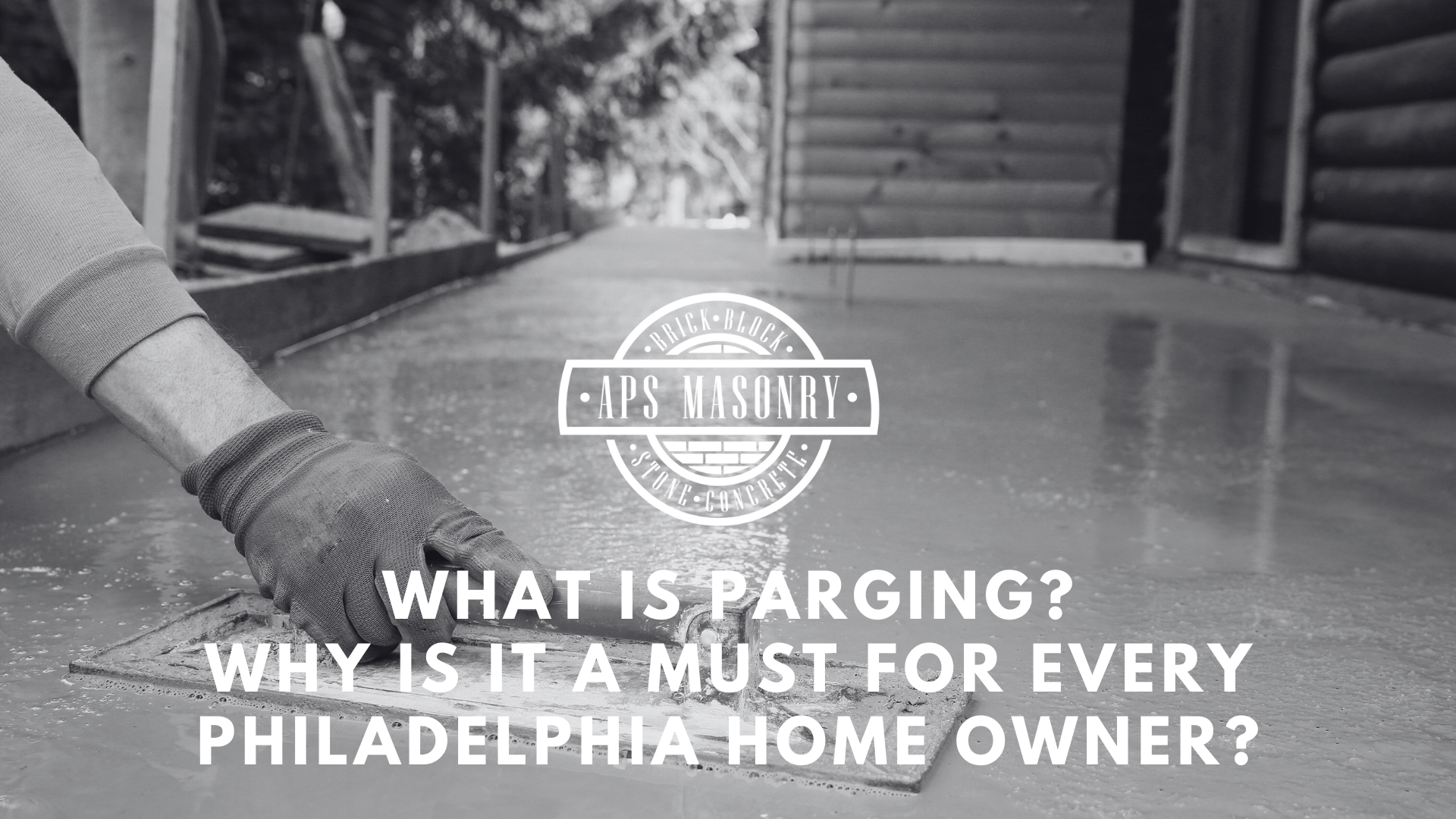
Parging for Philadelphia homeowners helps to protect and beautify their masonry walls. This simple process involves applying a thin coat of cement...
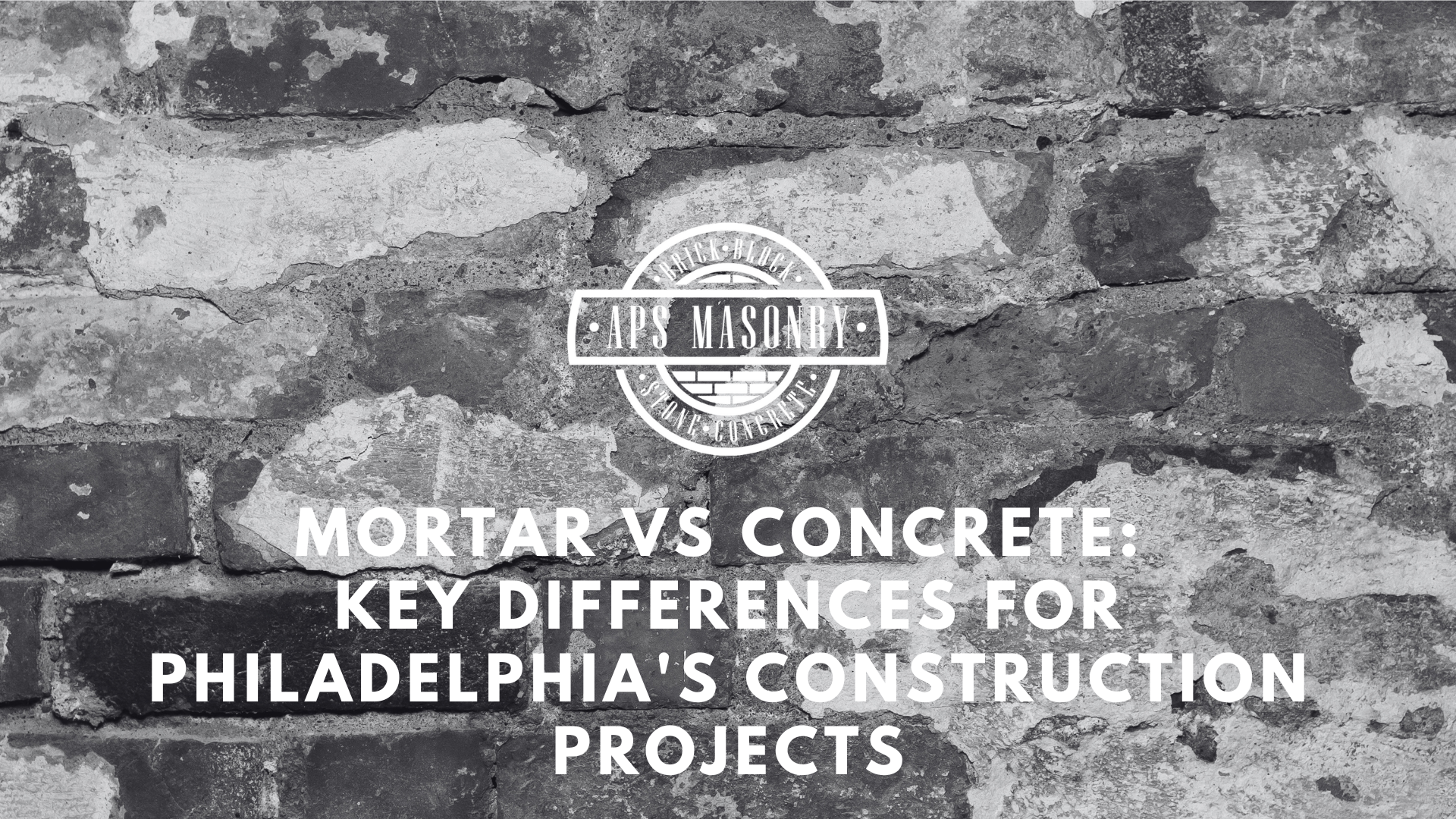
The differences between mortar and concrete are important for your construction projects in Philadelphia. Mortar is great for binding bricks and...
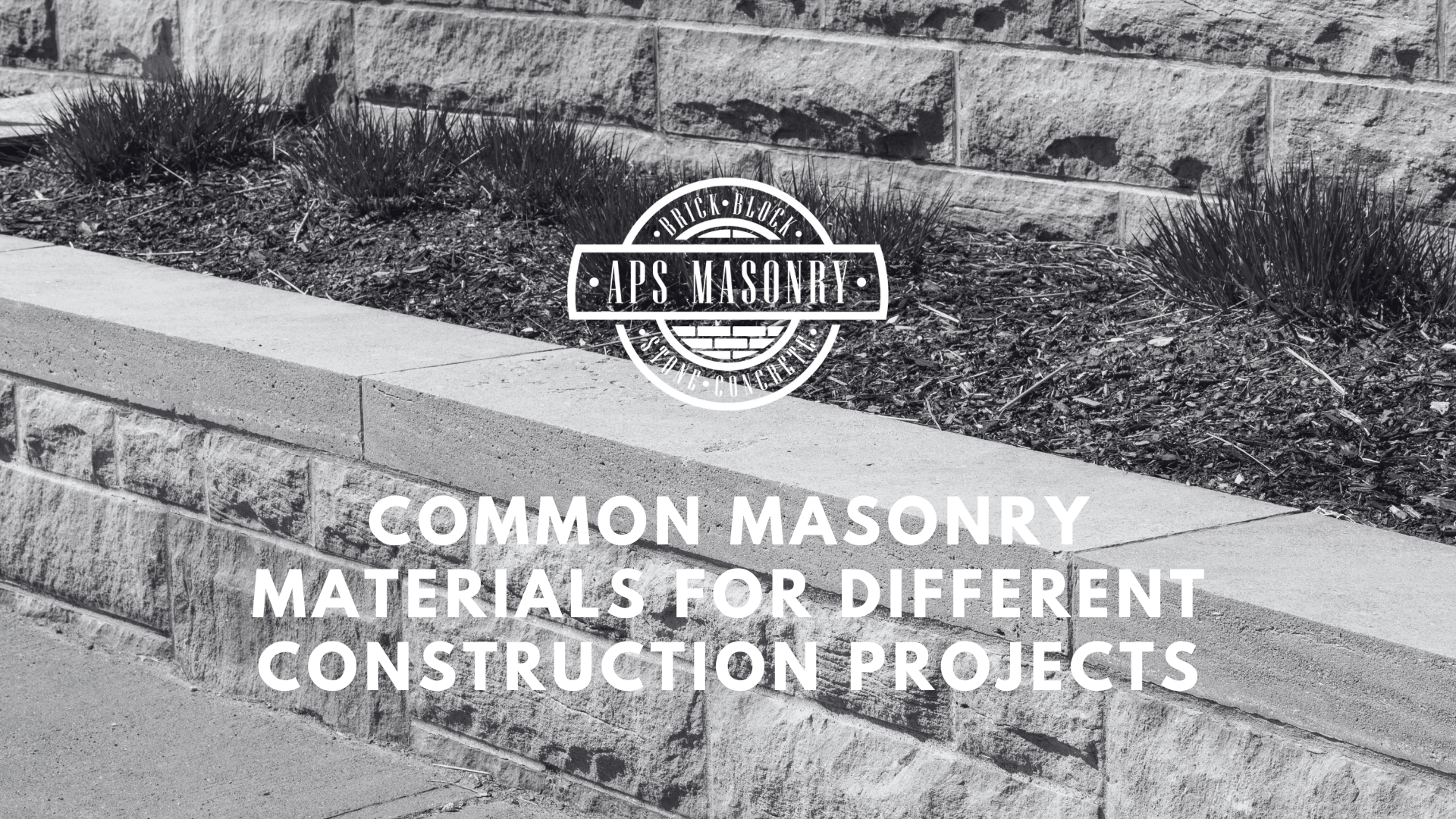
Choosing the right masonry materials is important in guaranteeing a project's durability, strength, and overall success. Masonry work is a technique...